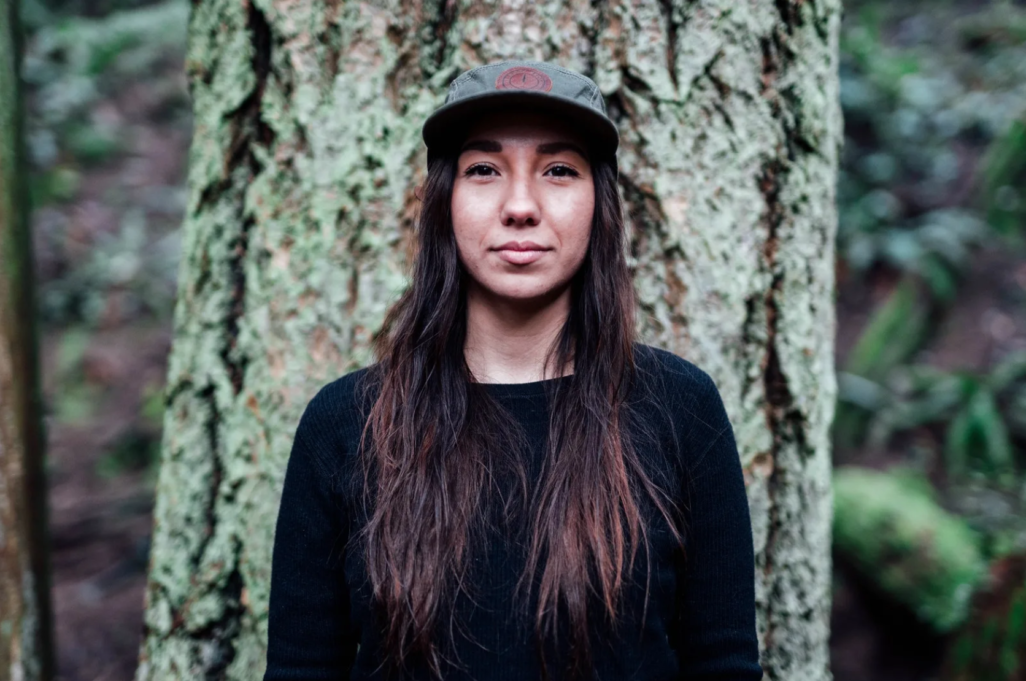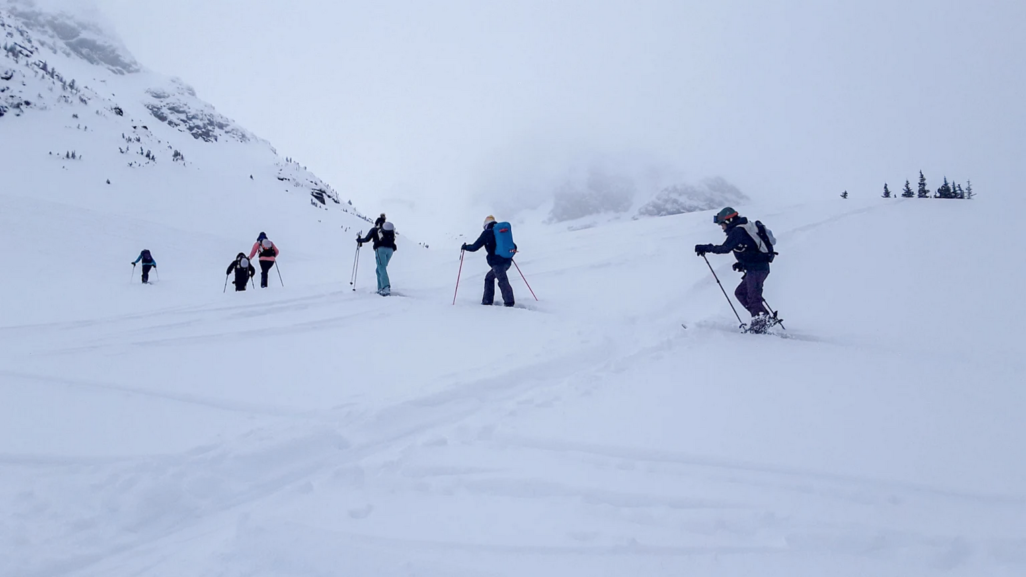
Photo by Jakob Gjerluff Ager
Myia Antone on Founding Indigenous Women Outdoors
By Serena Renner
Myia Antone always knew she was Indigenous, but it’s something she used to hide.
Despite being raised in Squamish—a glacier-carved outdoor mecca north of Vancouver on the unceded territory of the Sḵwx̱wú7mesh Úxwumixw (Squamish Nation) of her dad’s side—Antone grew up with the Ukrainian traditions of her mom, and viewed her surrounding culture and mountains mostly from a distance.
“It’s almost like looking through a window. You see it and you know it’s there, but you can’t really grab it or learn about it,” Antone says of her Indigenous identity as a kid. “It’s a big piece of yourself that’s missing.”
But in early adulthood, that piece was found and put into place. Now 25 years old, Antone is one of about 40 speakers of the Squamish language and the founder of Indigenous Women Outdoors, a nonprofit that’s helping Indigenous women heal, connect, and pursue careers in the backcountry. Through her language and outdoor work, she’s building community along with new paths to Indigenous knowledge and reoccupation.

Photo by Sandy Ward
Antone’s journey back to her culture was sparked by a class project at the University of British Columbia. The assignment was to design a sustainability plan for the city of Vancouver guided by a central question: Who do you want to be in this world? Antone took the question to heart, and struggled to come up with an answer. “I was like, ‘Oh my god, I have no idea. I don’t know who I want to be. I don’t even know who I am,’” she recalls.
The experience prompted her to reach out to her Squamish uncle and cousins, enroll in a Squamish language program, and get more involved in her community. The more she learned about Squamish people, the more she identified with them.
“I was always told that our people worked really, really hard. Anything you do, you give it 100 percent,” Antone says. “And that’s something my dad has always taught us, even just by watching him.”
Another pivotal experience came talking to a respected community member at a ceremony. He asked Antone whether she grew up “culturally,” to which she replied, “Not really.” He looked at her knowingly and said something she’ll never forget: “You have a lot of teachings within you.”
“That was definitely a lightbulb moment. I might not have identified as being a Sḵwx̱wú7mesh woman, but I have that inside me,” Antone says. “So there have been a lot of puzzle pieces that have just fit. They’ve been reminders that I’m on the right path.”
(Read the full profile, published in April 2021, at Hipcamp.)